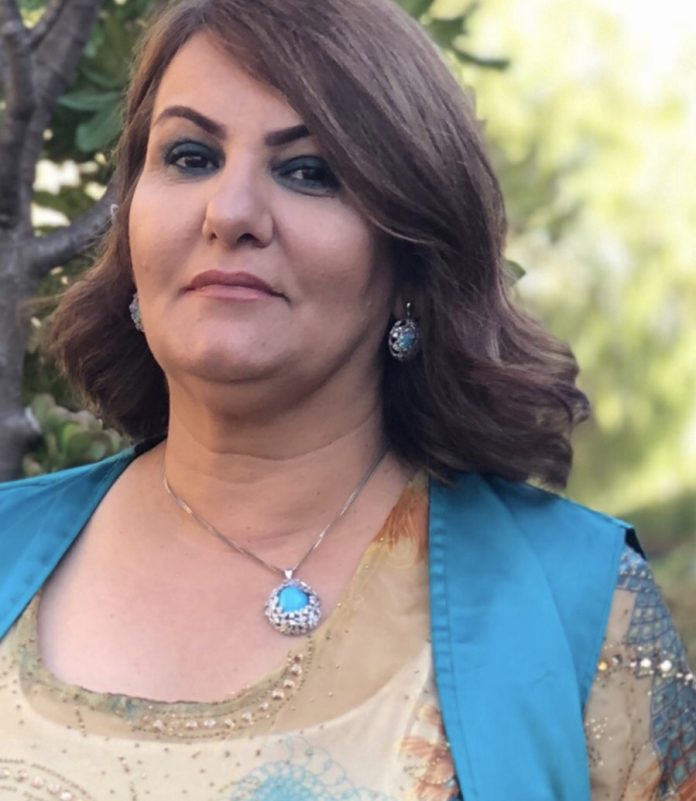For women fleeing violence in their home countries, finding refuge from violence can be difficult. Dilkhwaz Ahmed has dedicated her life to changing that.
A refugee herself, the El Cajon resident is now a refuge to others – predominantly Middle Eastern women seeking help from domestic violence. Her foundation, License to Freedom, provides education and resources to immigrant women who are survivors of domestic abuse.
Her work has garnered her recognition among leading voices in San Diego, including several “People of the Year” awards and, notably, she was honored by Casa Cornelia during their 25th Anniversary celebration last October for her humanitarian efforts in the U.S. and Middle East.
Casa Cornelia is a public interest law firm that provides pro-bono assistance in cases of civil rights violations.
Fleeing political persecution in Iraq because of her work as a women’s rights activist nearly two decades ago, Ahmed became a Casa Cornelia law center client and was given asylum.
It is because of these roots that this award has such a significance for her, said Ahmed.
“Actually this is my fifteenth award. Last year I received the San Diego County [Women’s’ Hall of Fame] award,” she said. “But this award is special because I was their client. I came to them and they represented my case. This is the first time that CC has given an award to one of their clients. They picked one of their clients to be special and it happened to me. That was a life-changing event for me, to get this award.”
The work Ahmed does in the community, especially in East County, is much needed. Even in 2017, after the number of refugees entering the country dropped, San Diego County still received 1,500 people seeking a new home. The county ranks number one in California for taking in refugees. Many of those individuals and families end up in East County, where there is a thriving community of Middle Eastern immigrants.
Ahmed said she understands the needs of this community because she is a part of it. Because of cultural practices and community pressure, even in the United States, many women from these communities feel they are unable to report abuse or leave dangerous situations, said Ahmed, who ran a similar non-profit organization in Iraq.
“Women were stayed home because, first they were told their voices don’t matter, and now they don’t speak the language,” she said. “We came from the same culture in terms of background, language, immigration, not being taken seriously, fear of losing our kids, not having financial support. In Iraq, women can not call the police. Women do not have the right in domestic violence situations. But here they have rights, they just need access, they need to be connected.”
License to Freedom helps women access those steps: taking a file to court, requesting a restraining order, finding housing, finding jobs. The organization also offers a training program for men from those communities to be culturally trained.
Ahmed said much of the success of License to Freedom comes from the partnership with Access Ink and San Diego Volunteer Lawyer program.
“Without them I wouldn’t be able to breathe,” said Ahmed. “My job is to do connect women but it’s not going to be a complete without having somebody representing our clients at court.”
It is a symbiotic relationship with Ahmed’s team providing social services, Casa Cornelia adding the immigration component and SDVL reaching out with legal assistance. Together, they form an incredibly effective unit.
“Dilkhwaz has always been a partner of ours,” said SDVL managing attorney Kris Jacobs. “We often cross-refer clients. Dilkhwaz sees a lot of people who need our assistance and she often has interpreters on site who can help translate and that’s extremely valuable. In the last several years, we’ve formalized our partnership and we have a program called Vision for Justice Collaborative. So if someone’s a victim, we will assist them in any legal means that results as part of their victimization.”
Jacobs said Ahmed is the centrical player.
“Dilkhwaz is the key to that entire partnership because she’s such a well-known force, in El Cajon in particular, because everybody knows who she is and the good work that she does and she’s able to reach out to so many people that need her assistance. I know her reach is broader than El Cajon,” said Jacobs. “If there aren’t more comprehensive services, especially someone facing language and pretty significant cultural barriers, the likelihood of them succeeding and getting away from their situation is much less than if someone like Dilkhwaz was there.”
Jacobs described Ahmed as a tireless worker.
“She is a real force,” she said. “She has seen such horror and she is always positive, I don’t know how she does it. She has the most positive outlook of anyone I’ve ever met.”
Ahmed also travels back to Iraq occasionally to offer counseling and support to Yazidi women who have escaped sex trafficking and other forms of abuse at the hands of ISIS.
“I have been going there a lot ot help survivors of ISIS or who have been abducted, raped, sold or tortured by ISIS, or a family member has been killed in front of them,” said Ahmed. “I go there twice a year and I raise money every time I go to provide therapy and healing for those who have been impacted by such a terrible trauma, to enable them to speak, to cry, to share their stories without being shamed, and to show them that they’re not alone and that what happened to them is not their fault.”
For Ahmed, the work she does is only natural. After being unable to practice and serve the women in her community in Iraq, she said she did not come to the U.S. simply to get asylum and be “done.”
“I could not be silent,” she said. “Advocates are not supposed to be silent.”














